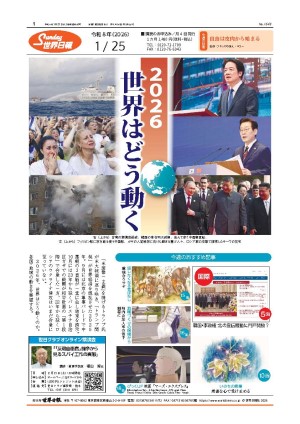A speech trap in Texas テキサス州における言論の自由のわな
A speech trap in Texas
Lois Lerner has competition in Texas as the undisputed queen of harassment. For the past two years, the Texas Ethics Commission has been harassing Empower Texans and seven other conservative organizations with an order, renewed last month, demanding that the groups hand over subscriber lists, the names of all contributors, bank records and correspondence. The commission hasn’t asked for Christmas card lists or favorite chili recipes, but it’s still early.
Ms. Lerner issued similar demands to Tea Party groups throughout the country from her position monitoring harassment targets at the Internal Revenue Service. A liberal Wisconsin prosecutor went after conservative groups with the same zeal until a federal judge ordered his investigation shut down.
Such outrages are expected in Washington and in certain blue states, but ham-handed pursuit of conservatives is not usually on the agenda in Texas.
Demanding lists from political groups has been clearly illegal since 1957, when a unanimous Supreme Court told Alabama it couldn’t order the NAACP to hand over its membership roster. Freedom from such snooping is, the justices said, “so related to the right of the members to pursue their lawful private interests privately and to associate freely with others in so doing as to come within the protection of the Fourteenth Amendment.”
Nonetheless, liberals talk a lot about fighting the “evil” influence of money in political campaigns, insisting the people have a right to know who supports which groups – so long as those same rules don’t apply to unions, which bankroll Democrats. Schemes at the state and federal level require “disclosure” through new laws, or when legislatures won’t enact the right laws, through taxing and regulatory bodies such as the IRS and the Texas Ethics Commission.
But even when a federal judge shuts down unconstitutional information requests and subpoenas, the tormentors often prevail. They succeed in tying up adversaries in a time-consuming and expensive legal battle. Every dollar spent on lawyers is a dollar not spent advocating lower taxes and smaller government.
Empower Texans was established to advocate fiscal conservatism, but Michael Quinn Sullivan, the group’s president, now realizes how central the First Amendment is even to budget and taxes. “The past two years have been very enlightening,” he tells this newspaper. “It has in fact changed our focus, after a fashion.”
Whoever controls speech can determine the outcome of political races and public policy disputes. “Campaign-finance reform rules,” says Benjamin Barr, a First Amendment lawyer in Washington, “are regulations about who’s allowed to participate in the democratic process, and who’s not. Who’s in, and who’s out. Who’s allowed to speak and during what time frames, and how much money goes into each groups.”
The first priority of all politicians writing campaign-finance rules is to defend their own jobs. Taking tender care of incumbents is the first order of business. That’s why, regardless of whether Republican or Democrat, they must never be allowed trampling rights on the right of free speech.
This example of harassment of conservative groups in a deep-red state ought to be a warning to Tea Party organizations everywhere. If they can do it in Texas, they can do it anywhere.
May 13, 2014
テキサス州における言論の自由のわな
(内国歳入庁=IRS=の免税組織局長)ロイス・ラーナー女史も、テキサス州では、議論の余地のない嫌がらせのクイーンとしては見劣りがする。この2年間、テキサス倫理委員会が「エンパワー・テキサンズ」や七つの保守系組織を、組織は加入者名簿、寄付行為者の名前、銀行の記録、そして通信記録などを差し出すことを求めるとする、先月更新された命令書でハラスメントを行っているからだ。
同委員会は今のところ、クリスマス・カードや好みのチリのレシピまでは要求していないが、これは、まだ序の口なのだ。
ラーナー女史は、IRSで(厳格な税審査という)ハラスメントを行う標的を監視できる地位を利用して、全国のティーパーティー(茶会)・グループに宛てて、同様の要求書を出していた。リベラル派のウィスコンシン州の検査官は同じような熱意で保守系グループを追い込んだが、ついに連邦判事が彼の捜査を停止するよう命じる事態になった。
そのような暴挙はワシントン州や一部の民主党州では起こりそうだが、保守系に対する見え透いた追い込みは、普通、テキサス州の政治環境ではあり得ない。
政治グループの名簿を渡すよう要求することは、1957年以来、明らかに違法とされている。その年、最高裁は、全会一致で、アラバマ州に、州は、全米黒人地位向上協会(NAACP)に対して、会員名簿を差し出すように命じることはできない、と伝えたのだ。判事らは、そのような監視からの自由は「個人的に合法的利益を追求し、そうしながら自由に他人と交流するための会員の権利に深く関わるもので、(奴隷制廃止に伴う市民権の拡大と、法による平等な保護などを定めた)憲法修正第14条の保護下に置かれるべきものである」と述べた。
にもかかわらず、リベラル派は、選挙運動におけるカネの「あしき」影響力と闘うなどと言って多弁を弄している。そして、彼らは、国民は、どの集団を誰が支援するか、知る権利があると主張する――あくまでも、同じ規則が、労働組合に適用されない限りは、ということだ。というのも、労働組合は民主党に資金を供給しているからである。州および連邦レベルのやり方としては、新しい法律は「開示」を要求していて、立法府が正しい法律を制定しようとしない場合は、課税や、また、IRSやテキサス倫理委員会のような取締機関によって「開示」することを求めている。
しかし、連邦判事が憲法違反の情報要求や召喚をやめさせる時でさえ、憎まれっ子はしばしば世にはばかるのである。彼らは、時間を食い、カネの掛かる法廷闘争で、敵を上手に縛り上げる。弁護士らに費やされるカネは1ドルたりとも、減税や、より小さな政府を提唱するのに振り向けられることはない。
「エンパワー・テキサンズ」は、財政上の保守主義を提唱するために設立されたのだが、このグループの会長である、マイケル・クイン・サリバン氏は、(言論の自由などを定める)憲法修正第1条が、予算や税金にとってさえ、いかに重要か思い知らされている。「ここ2年間というもの、目を開かされてばかりいた」「それは、曲がりなりにも、事実、私たちの運動の焦点を変えた」と彼は本紙に語る。
言論をコントロールする者が皆、選挙戦や公共政策論の結果を左右するのである。ワシントンの憲法修正第1条専門の法律家、ベンジャミン・バー氏は「選挙資金制度改革法は」「誰が民主的プロセスへの参加を許されるか、誰が許されないか、を決める規則なのである。誰がOKで、誰が感心しないか。誰が話すことを許され、そして、どのような時間枠を与えられ、また、各グループにどのくらいのカネが行くか、などを」と語る。
選挙資金のルールを書くすべての政治家の第1の優先事項は、彼ら自身の仕事を守ることである。現職議員を深く思いやることが仕事の1番目に来る。そういう訳だから、共和党員だろうと、民主党員だろうと、彼らは決して、自由な言論権を蹂躙(じゅうりん)する権利を行使することを許されてはならないのだ。
(テキサスのような)共和党色の濃い州での保守系グループへのハラスメントの例は、すべての地域のティーパーティー組織への警告になるべきである。彼らが、そういうことをテキサス州でできるなら、彼らはどんなところでもできるのだ。(5月13日付)





